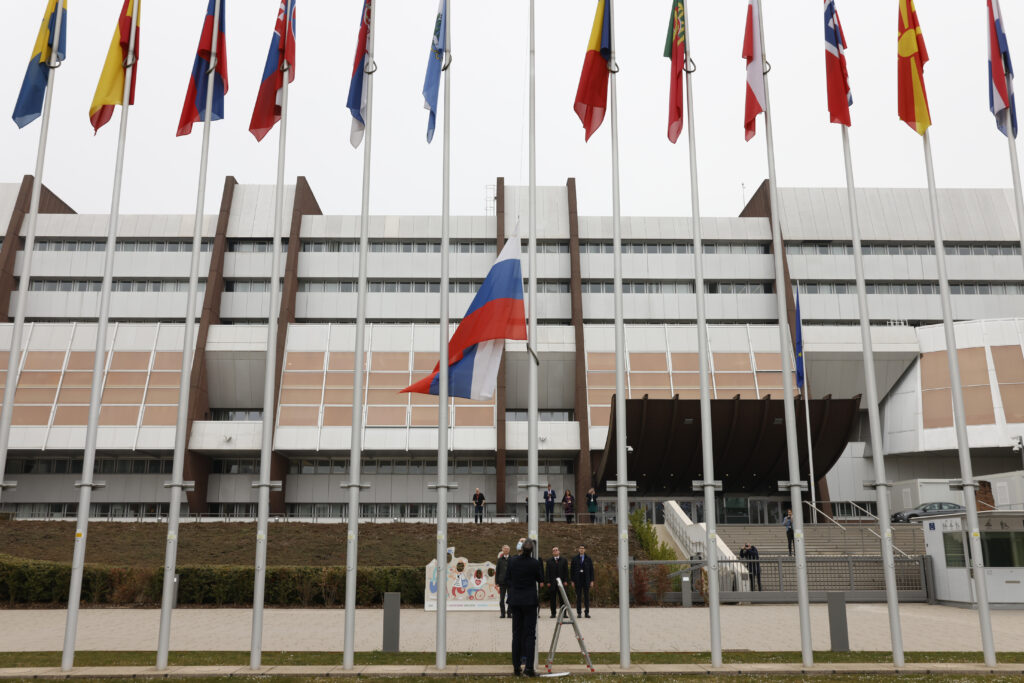On August 2, 2017, Donald Trump signed Countering America’s Adversaries Through Sanctions Act (CAATSA). The purpose of this law is not to list US foes but to show potential tools that the US can use to resolve international disputes and disagreements. This is not the use of the armed forces nor the «organization of color revolutions.» This is about economic sanctions. Moreover, the subjective composition of potential targets of the law is not limited to classical states. The toolkit of the law targets the full pack of actors around authoritarian regimes. It runs the gamut from oligarchs to officials, to proxies, to close relatives, to workers in state-owned enterprises. So, for potential and current adversary states of the United States and its elites, CAATSA has become a kind of watershed. It implies a renunciation of force in favor of economic coercion. A signal went out to the authoritarian regimes: American commandos would not fly in to get them in a helicopter, as was the case with the Panamanian dictator Manuel Noriega in 1989. But if a ruling regime is among the opponents of the United States, other tools will come — sanctions, expulsion from the Western financial and economic community, disconnection from the benefits of Pax Americana.
Sanctions have several obvious advantages. First, it is a peaceful means of pressure and dispute resolution. Their application does not violate the UN Charter. Second, economic coercion is legitimate even in the current paradigm of international law; it was not recognized by the UN International Court of Justice as violating the principle of the non-use of force or the threat of force. Third, sanctions limit the burden on taxpayers of foreign policy adventures. Fourth, such an approach deprives domestic critics from the opposition parties, since foreign policy goals are achieved without a single shot and without coffins wrapped in a star-striped flag. Fifth, American businesses and allies get clear guidance on who is the foe and who not to do business with.
The effectiveness of American sanctions lies in three factors. One, the strength of US economic power. Two, an existence of a state institution that monitors compliance with the sanctions policy. Three, fear of becoming a violator of US sanctions legislation. Economic sanctions are being applied more and more often; but for the US itself, the question remains of their effectiveness and the time frame for achieving their goals.
«Caesar Act» against the regime of Bashar al-Assad
On April 29, 2011, President Barack Obama declared a state of emergency in the United States due to gross human rights violations in Syria. To extend this status quo, the US executive reports to Congress on measures taken to end this threat. Otherwise, the emergency should be ended due to an expired limitation period.
By December 2019, American lawmakers saw that most of the sanctions bills could not pass Congress until the end of the calendar year. The leader of the Republican majority of the Senate and sanctions skeptic Mitch McConnell did not put relevant initiatives on the agenda and vote. The draft laws «Protecting Europe’s Energy Security Act» (PEESA) and the «Caesar Syria Civilian Protection Act» were under threat. So, lawmakers played the traditional trick of enforcing norms through the National Defense Authorization Act 2020 (NDAA). Donald Trump signed the NDAA on December 20, 2019 along with the above laws, which even follow each other in the text.
The Caesar Act entered into force on June 17, 2020. The name of the law was not given in honour of a Roman emperor. Instead, it was after a secret war correspondent who provided the US authorities with photos of the atrocities of the Assad regime and its mercenaries. The Caesar Act has created a toolkit to apply sanctions against key sectors of the Syrian economy, as well as any Syrian or foreign state-owned company or private organization that interacts with the Assad government. It blames those «guilty of mass deaths of civilians and atrocities, including the use of chemical weapons and other barbaric weapons».
The idea behind this law is revealed by the example of the PEESA law introduced by Senator Ted Cruz in early 2019 to prevent the active phase of the construction of the Nord Stream 2 gas pipeline along the bottom of the Baltic Sea. Once Donald Trump signed the NDAA, the very next day the pipelayer — the Swiss shipowner Allseas — announced a unilateral exit from the Nord Stream 2 project. Its vessels left the Baltic Sea in several days. The goal of the law is complete. The laying of the pipeline was stopped 100 kilometers before the finish. Due to fear of secondary sanctions, none of the Western companies expressed a desire to take the place of Allseas.
The legislator pursues the same logic in Caesar Act: everyone who is afraid of US sanctions should immediately stop all legal relations in Syria and with Syria.
Why the Caesar Act will not work
The implementation of the law, however, will face difficulties. The Syrian regime and the entire Syrian elite have been included in the SDN sanctions list for the past 10 years. The main trading partners of Syria — Iran and Russia — are also under sanctions.
Western businesses largely withdrew from Syria precisely under the threat of US secondary sanctions. There’s no need for morel warning. But there is a problem with the enforcement of the law and the solution to this problem is revealed through the ability of the extraterritorial control of the US authorities over the implementation of its norms.
In the Western paradigm, business itself is responsible for enforcing sanctions. It does this not only out of caution but also at the risk of secondary sanctions or administrative fines from the US government authority administering the sanctions, the Office of Foreign Assets Control of the Treasure Department (OFAC). OFAC controls business through access to all banking operations performed through American correspondent banks. Its control is expressed via the legitimate obligation of American businesses to submit reports on the frozen property of sub-sanctions and transactions performed with or in their favor. Where there is no Western business and classical banking in USD currency, OFAC opportunities also disappear.
Even economic contracts, not to mention remittances, are not under the effective control of the American regulator and do not pass through Western banks. Therefore, it is not clear who the United States wants to scare with new sanctions under the Caesar Act. Instead of the usual banking operations, a second life in Syria was given to the medieval hawala — an informal Middle Eastern financial and settlement system based on the offsetting of requirements and obligations. It allows you to transfer money in any currency to Syria, for example, from Russia. To do this, transfer funds to the Moscow hawaladar and his broker will give the right amount to the named recipient in Damascus. Syria takes into account the experience of Iran, which for 40 years has accumulated a decent experience in life under American and European sanctions. This is the re-export of prohibited goods through the UAE and Turkey; and gold and silver as payment for oil and goods; and change of consignment notes; and the use of diasporas, as well as their companies in neighboring countries; and cryptocurrencies coming into fashion.
Therefore, Caesar Act is needed to record the massive violations of human rights in Syria by the regime of Bashar al-Assad with the message that the West does not have any indulgences for its regime in the future. As for another signal to Western business — it is better to stay away from the current Syrian regime, otherwise, there is a risk of falling under US secondary sanctions. And finally — this is another warning personally to Gennady Timchenko and Yevgeny Prigozhin — the continuation of projects in Syria will alienate them. Both being excluded from the SDN sanctions list and can bring new sanctions on them and their companies, which Bashar al-Assad will not be able to remove.










